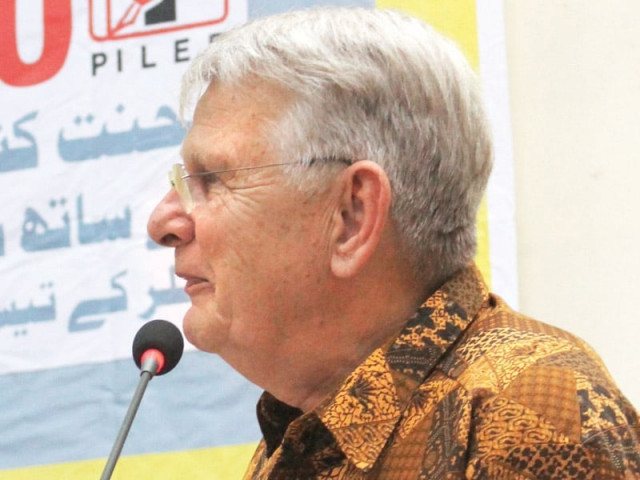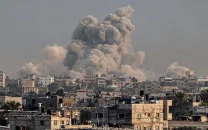The workforce: ‘Between budgets and bias, projects have replaced planning’
Dr Jan Breman points out that the labour industry has become informal.

It is a myth that Pakistan does not have resources or money for development, said architect and urban planner Arif Hasan. “The budgets allotted for projects lapse every year.”
Hasan was talking at an international conference organised to celebrate 30 years of Pakistan Institute for Labour Education and Research (Piler). According to him, there was an anti-poor bias among policymakers which was why they made excuses for creating further divides in the society. He said that the policymakers perceived the poor people of the country as incapable of critical thinking.
“The road near my house was rebuilt but there was no footpath,” he said. “I went to the area nazim and asked him why did he not build one? He told me that even if he built one no one would walk on it.”
While giving the example of Sea View, he said that Defence Housing Authority (DHA) had banned hawkers and monkey handlers from the place in order to improve the sort of people who came there – more families. “That happened. But the poor people stopped coming to Sea View,” he said. “Projects have replaced planning.”
He said that the policymakers were not professionally trained, and those who were, lived in a bubble. To add to the problem, there was no room for the above problems in the current development plan.
Dr Jan Breman, Prof. Emeritus at University of Amsterdam in the Netherlands, spoke on the plight of the non-labouring poor. These are the people who don’t even have their labour to sell to earn money. This was also the theme of his latest research and Breman recounted the tales of people from Surat, in Gujrat state, which he had recently visited. He called these people ‘paupers’.
“The poor people can still do something about their situation but the paupers can’t,” he said. “They are the ones who have given up completely.”
Gesturing with his hands, Prof. Breman explained that people who worked continuously in difficult conditions for a long time grew old earlier. Pretty soon they exhaust themselves and have no more labour to sell and enter the category of non-labouring poor.
“The growth rate of Gujrat state is 8% to 10% but it also has the most paupers,” he said. “This is the cost of development.”
Earlier in the seminar which was titled ‘Labour in the age of globalisation’, Breman talked more specifically about South Asia, he said that the labour were footloose – disembodied from the society. He was the first speaker to point out that labour had become informal in the global age putting them at a disadvantage. The people migrated to cities from rural areas but more often than not they didn’t do so by choice and could not go back because of natural disasters or other problems.
He referred to an incident in Badin where a labourer burnt himself on Tuesday. The issue was not only decent working conditions but also giving the people respect and decency. “Roti, kapraa aur makaan are what a person needs to maintain his dignity,” said Prof. Breman.
Dr Rubina Saigol, an independent researcher, said that with time democracy had become limited and equality had been replaced by consumerist attitude to people’s needs. The world was a ‘global pillage’, she said, as the people become more and more unequal. “This is an intensification of capitalism which itself is based on inequality.” While talking about state benefits, she said that the concept of a welfare state was itself a compromise by the state. The capitalist system still used the people but it also provided them with facilities. “Cost has been socialised, while the profit was privatised,” she said.
Published in The Express Tribune, May 3rd, 2012.


















COMMENTS
Comments are moderated and generally will be posted if they are on-topic and not abusive.
For more information, please see our Comments FAQ